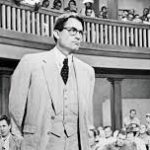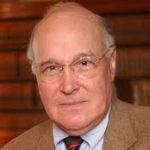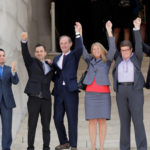White Shoe Social Justice Warriors: The Pro Bono Racket
Cui bono? Big Law preens at the public’s expense, pushing a self-serving, left-wing agenda while pretending to be Atticus Finch
A related series of posts appeared on Law & Liberty (here and here). Thanks to Instapundit for the shout-out (here). And How Appealing (here). And again to Instapundit (here). And to Overlawyered.com (here).

In 2000, Heather Mac Donald suggested in a City Journal article that “It is time for firms to ask whether their pro bono programs in fact serve the public good.” Her advice went unheeded.
“It is very rare for anyone to question the usefulness of public interest lawyering.” Second Circuit Judge Dennis Jacobs (2008)
“Both conventional usage and official bar definitions of pro bono service are quite elastic, and many attorneys take considerable liberties with what counts.” Stanford Law Professor Deborah Rhode (2009)
“To meet the challenges we now face, a new army of private lawyers is needed to help support the fight that lies ahead.” Lawyers’ Committee for Civil Rights Under Law (2017)
“Your backing supports CCR as a leader in the resistance movement, and allows us to push forward on the frontlines of justice, holding the line against a dangerous slide into American fascism.” Center for Constitutional Rights (2017)
Imagine a well-organized army of activist lawyers, larger than the internal legal staffs of the ACLU, the NAACP Legal Defense Fund, MALDEF, the Sierra Club, the National Lawyers Guild, the Natural Resources Defense Council, the Southern Poverty Law Center, and the Lambda Legal Defense and Education Fund, combined. Imagine further that this army of lawyers was educated at the nation’s top law schools and trained at the leading law firms; was backed by unlimited resources such as computerized legal research, teams of paralegals, and state-of-the-art technology; was not constrained by ordinary market forces (such as a paying client); and had a vocal, well-connected cheerleading section rooting them on.
What if such a vanguard of Ivy League legal talent was deployed by progressive zealots against ordinary citizens and taxpayers, to (among other things) protect illegal immigrants from deportation, advocate for vagrants blighting urban areas, hamstring law enforcement, seek the release of dangerous terrorists imprisoned at Guantanamo Bay, promote the legal rights of transgender students and prisoners, oppose capital punishment for death row inmates, foil voter ID requirements, and generally challenge the policy initiatives of duly-elected public officials (such as President Trump’s so-called “travel ban” order)–and sometimes even ballot measures passed by the voters themselves? If cost were no object, these zealots’ ability to wage unlimited litigation could—and sometimes would—overwhelm the finite resources of government lawyers representing the public on the other side.
Such an assault by a crack team of well-equipped lawyers—the best that money could buy–might be called many things, but “in the public interest” would likely not be among them. The vainglorious legal establishment, ever disdainful of bourgeois “deplorables,” begs to differ.
In the guise of altruistic-sounding “pro bono publico” programs (a Latin term meaning “for the public good”), the country’s largest—and richest–law firms deploy the equivalent of thousands of full-time attorneys and paralegals gratis each year in a myriad of quixotic liberal crusades, smugly convinced that their labors improve society. To the elitist clique of large law firms—known in the industry as Big Law—when such an onslaught of anti-social litigation is unleashed free of charge it is simply presumed to confer a public benefit, regardless of its actual consequences. Seizing the moral high ground, self-anointed “pro bono” lawyers piously assume that their activism is doing the public a favor—in the nature of noblesse oblige.
Waiving compensation (except for occasional court-awarded attorneys’ fees), the most privileged lawyers in America moonlight as social justice warriors, and sanctimoniously preen in the process. With characteristic arrogance, Big Law does its best to foil the enforcement of democratically-enacted laws, and then pats itself on the back for its “public service.” What public, exactly, do these elite lawyers think they are “serving”? Certainly not ordinary citizens who expect to see the laws they support enforced, and who depend on elections—not lawsuits—to make their voices heard.
In many cases, “pro bono” litigation masks a distinct political agenda that undermines representative self-government while simultaneously increasing the power and influence of activist judges and the legal profession—strengthening the grip of an insular and out-of-touch ruling class. Bar associations and judicial organizations—loyal components of the legal cartel—march in lockstep promoting this self-righteous charade.

The presumed benefits of pro bono are rarely questioned, at least from within the legal guild. A prominent exception is Judge Dennis G. Jacobs, who was a partner at a prestigious Wall Street law firm before President George H.W. Bush appointed him to the U.S. Court of Appeals for the Second Circuit in 1992. Because it is based in New York City, the Second Circuit is one of the nation’s most visible—and important—courts of appeals. In a widely-publicized address to a Federalist Society audience in 2008 while he was serving as chief judge, Jacobs contended that most pro bono litigation conducted by law firms is “essentially self-serving,” expanding the power of the legal profession over ordinary citizens —and promoting a distinctly liberal political agenda—while simultaneously undermining democracy. This is a serious charge. Is an unaccountable legion of “ferociously active lawyers,” acting in the “self-conferred” role of public guardian, actually responsible for causing “great harm,” as Jacobs suggests? Jacobs, whose remarks infuriated the Left, was spot on.
“Pro bono” litigation is indeed often a misnomer. Starting off decades ago as the ad hoc efforts of civic-minded lawyers to help less-fortunate citizens facing legal problems, “pro bono” has morphed into a self-congratulatory exercise in virtue-signaling, with elite law firms trying to out-do each other in the quantity and novelty of the volunteer services they provide. With the encouragement of influential industry publications such as the American Lawyer, law firms jockey for roles—forgoing their customary (and in many cases astronomical) hourly rates–in the nation’s most high-profile and controversial lawsuits, advocating abortion rights, supporting penalties for religious objectors to same-sex marriage, fighting to preserve sanctuary cities, seeking the closure of New York’s Rikers Island and other jail facilities, removing religious symbols from the public square, and a host of similar hot-button issues.
Virtually all of the country’s large law firms—and there are hundreds—have adopted formal pro bono programs, typically pursuing the same one-sided agenda. A veritable pro bono “arms race” has ensued—ultimately subsidized, it must be remembered, by the firms’ paying clients, which tend to be Fortune 500 companies. Many of the most important lawsuits and appeals raising cutting-edge policy issues are being waged using pro bono resources donated by large law firms. Enshrining the LGBT agenda in the Constitution by judicial edict is a prime example—a legal revolution wrought by buttoned-down, Brooks Brothers-clad barristers channeling their inner William Kunstler from their posh corner offices.

In 2003, Chicago-based Jenner & Block’s Paul Smith argued Lawrence v. Texas in the Supreme Court, pro bono, establishing a constitutional right to engage in homosexual sodomy, and invalidating numerous state laws in the process. Famed “super lawyer” David Boies, founder and chairman of Boies, Schiller & Flexner, successfully defeated Proposition 8, passed by California voters in 2008 to preserve traditional marriage, in a pro bono engagement. In 2013, a team of pro bono lawyers from the New York firm Paul, Weiss, Rifkind, Wharton & Garrison, led by partner Roberta Kaplan, succeeded in overturning the federal Defense of Marriage Act in the Supreme Court. “We didn’t charge a penny, not a single penny for anything,” Kaplan bragged, “even including out-of-pocket costs, like expert fees.”

By the time the issue of “marriage equality” reached the Supreme Court in Obergefell v. Hodges (2015), the battle lines had been drawn: “enlightened” progressive opinion—which reigns unchallenged in the echo chambers of academia, the media, Hollywood, and the legal culture–favored same-sex marriage, and only the disfavored lumpenproletariat supported the majority of state laws recognizing traditional marriage. In elite circles, peer pressure and fear of negative publicity produce rigid conformity to the latest intellectual trends–groupthink. Accordingly, numerous law firms argued pro bono for the overruling of state laws reflecting two millennia of Judeo-Christian tradition. Few firms, if any, defended traditional marriage. Boston-based Ropes & Gray argued Obergefell pro bono on behalf of Gay and Lesbian Advocates and Defenders (GLAD), and dozens of other law firms filed pro bono “friend of the court” (amicus) briefs in support of same-sex marriage (along with accompanying press releases).
In the 2018 showdown between Christian baker Jack Phillips and the Colorado Civil Rights Commission (Masterpiece Cakeshop), regarding the refusal of religious objectors to celebrate a same-sex marriage, numerous law firms weighed in—pro bono–overwhelmingly against the rights of religious objectors. Global law firm DLA Piper announced that it filed an amicus brief “on behalf of nine civil rights organizations led by the Lawyers’ Committee for Civil Rights Under Law”—urging the Court to override Phillips’ religious objections. The American Bar Association, in a pro bono brief written by the Los Angeles powerhouse firm Munger, Tolles & Olson, concurred. None of the large firms supported Phillips.
And so on, not just in the Supreme Court, but in federal courts across the country, with litigation challenging President Trump’s rescission of DACA, seeking to overturn Texas’s enactment of laws regulating abortion, and seeking to restore voting rights for convicted felons. Law firm pro bono programs mirror the latest progressive fashions, unfailingly promoting policy goals favored by the Left—what is sometimes referred to euphemistically as “social justice.” In recent decades the progressive tilt in the legal establishment has become more pronounced—consistent with the polarization of national politics overall–and the sheer quantity of pro bono litigation has burgeoned. Pro bono litigation has become a potent weapon in the ongoing culture war. Unless corrected, these disturbing trends will only worsen.

The legal industry was in a different place when City Journal chronicled the pro bono phenomenon almost 20 years ago. (Heather Mac Donald, “What Good is Pro Bono?”, Spring 2000) Since then, pro bono, like the rest of the law business (and the legal profession is a business), has undergone explosive growth. Pursuant to a metric suggested by an industry trade association, law firms are strongly encouraged to devote up to five percent of their billable hours to pro bono work. “Billable hours” are the revenue unit that fuels Big Law. As law firms grow (and become busier), their pro bono programs—by design–become ever larger and more ambitious. In the status-conscious world of Big Law, the largest law firms regard their pro bono programs as a symbol of their success—and often produce slick “annual reports” describing their volunteer activities in self-absorbed detail.
In some industries, moguls show off their success by owning trophy homes, flying by private jet, or having the largest yacht in the marina. In Big Law, size matters, and the number of pro bono hours a firm can contribute while remaining in the top ranks of profitability is the ultimate status symbol.
The legal profession is highly stratified. Despite the glamorous image depicted in popular media, the overwhelming majority of lawyers are solo practitioners, are employed in-house by a corporation, or work for a small law firm (fewer than 50 lawyers) or the government—performing mainly routine tasks at surprisingly modest levels of remuneration. (Median salaries industry-wide are slightly over $100,000/year.) Large law firms represent the aristocracy of the bar. Less than one percent of law firms in the United States have more than 100 lawyers. Out of the 1.3 million licensed attorneys in the U.S., fewer than 100,000 work at the 100 highest-grossing law firms. Thus, Big Law represents a small fraction of the overall legal profession, but accounts for a disproportionate amount of its power, influence, and earnings.

The American Lawyer tracks the top 100 law firms in its closely-watched Am Law 100 index. The Am Law 100 is Big Law’s statistical barometer, and portends important trends within the thin but consequential upper strata of the legal profession. Each year the American Lawyer names the nation’s top 20 firms as its “A-List,” a fiercely-competitive beauty pageant in which the firms’ pro bono ratings account for a substantial portion of the score. In Pavlovian fashion, law firm managers eagerly seek the coveted “A-List” designation. Due to its unmatched capacity, and extraordinary sensitivity to outside pressure, Big Law is the industry segment where the bulk of the pro bono mischief occurs.
The volume of pro bono work performed by Am Law 100 firms more than doubled between 2000 and 2008. The influential Pro Bono Institute (PBI) reports that 129 Big Law firms participating in PBI’s reporting protocols performed nearly five million hours of pro bono work in 2017 alone, a greater-than-three-fold increase since PBI’s inception in 1995. This staggering total represents the full-time equivalent (FTE) of a 2,500-lawyer law firm for an entire year. PBI adds that “Although the number of firms reporting decreased slightly from last year, total pro bono hours increased by more than 310,000 hours from 2016. Furthermore, the average number of pro bono hours rose to 66.26 hours per attorney.” The PBI reports that signatory firms have contributed over 73 million pro bono hours since 1995—an astonishing 36,500 lawyer-years in terms of FTE.
The legal profession has long recognized an ethical obligation to ensure “justice for all,” particularly those who cannot afford legal representation. The ABA, which serves as the legal profession’s main spokesman, indefatigably promotes pro bono programs. The notion is that the legal profession enjoys monopoly privileges which entail reciprocal obligations on the part of practicing lawyers. Rule 6.1 of the ABA Model Rules of Professional Conduct states that every lawyer “has a professional responsibility to provide legal services to those unable to pay,” and suggests that each lawyer render at least 50 hours of pro bono legal services each year, without fee, to “persons of limited means.”
Aside from the legitimate altruism that originally inspired this position, the ABA also promotes pro bono to increase the power and importance of the legal profession. Treating legal representation as indispensable—like medical treatment—appeals to the vanity of lawyers who imagine themselves as essential to society. The ABA is so committed to pro bono work that it formed a Standing Committee on Pro Bono and Public Service and created the Center for Pro Bono. In 2006, in recognition of the importance placed on law firm pro bono opportunities by law students, the ABA adopted a resolution urging law schools to require legal employers that recruit on campus to disclose detailed information about their pro bono programs.
Helping individual indigents navigate the legal system in landlord-tenant disputes, criminal cases, child custody disputes, and similar matters is a far cry from conducting legal crusades against traditional marriage and impact litigation on behalf of the victim group du jour. Pro bono advocates gloss over the distinction, treating legal services to the “poor and disadvantaged” as a concept capacious enough to accommodate almost any social justice cause, including class actions, lobbying, administrative rulemaking, civil rights litigation, and even environmental claims. “Pro bono” thus became a catch-all category for law firms’ pet causes, often far removed from legal aid to low-income individuals. This sleight-of-hand—the scam underlying pro bono–transforms ABA Rule 6.1 into a mandate for political activism.
PBI, a non-profit organization devoted “transforming the pro bono efforts of major law firms,” has issued a Law Firm Pro Bono Challenge exhorting firms to set a goal of up to five percent of their total billable hours, and to give associates full credit for their pro bono work. Big Law, well-represented on PBI’s board and advisory committees, has avidly embraced the challenge. Over 130 major law firms have formally assumed PBI’s pro bono commitment. With a typical billable workload in excess of 2,000 hours per year, the challenge calls on large firms to devote as much as 100 hours per attorney to pro bono matters each year. Thus, each large law firm with 500 or more lawyers is expected annually to contribute tens of thousands of hours to pro bono matters. In an industry characterized by peer pressure and groupthink, the publicity-conscious large law firms compete against one another to see which one can deliver the highest average or total number of pro bono hours.
In 2016, the white shoe D.C. firm Covington & Burling was recognized as “pro bono firm of the year” for having devoted an average of 106 volunteer hours per attorney, or a total of 80,300 pro bono hours—the equivalent of 40 lawyers working full-time. One highlight of the firm’s 2016 pro bono efforts was serving as co-lead counsel in the Arizona federal court case in which Maricopa County Sheriff Joe Arpaio was held in contempt—for which he was later pardoned by President Trump. Chicago-based Sidley Austin, with 1,900 lawyers worldwide, brags that its lawyers and staff devoted more than 105,000 hours (over 52 FTEs) to pro bono projects in 2017.
The bar keeps getting raised. The global giant Latham & Watkins reported an average of 116 pro bono hours per U.S.-based lawyer in 2017, for a total of 236,080 hours of volunteer work worldwide (118 FTEs), having a market value of $180 million!
What is pro bono? Providing legal aid to those unable to afford representation—waiving fees for clients unable to afford them–quickly evolved into a form of social work, and now has become in many cases a vehicle for political activism. Pro bono lawyers have become legal crusaders—social justice warriors—and the goal of progressives is to reach “underserved groups” such as undocumented immigrants, sex workers, prisoners, suspected terrorists, transgendered persons, and others who do not fit the conventional profile of the “poor and disadvantaged.” The most committed firms form alliances with activist organizations such as the ACLU, MALDEF (Ron Unz, “Nonsense in Any Language” City Journal (Autumn 1997)), Public Counsel, the Center for Constitutional Rights, and the Lawyers’ Committee for Civil Rights Under Law, allowing them to pursue major lawsuits, sometimes referred to as “impact litigations.” The goal in such lawsuits is to change public policy–overturning laws, increasing taxes, and/or altering spending priorities–through the courts rather than through the political process.
For example, in 2017, Fried, Frank, Harris, Shriver & Jacobson and Munger, Tolles & Olson partnered with MALDEF to represent a group of low-income, non-English-speaking students in a policy-oriented lawsuit against the state of New Mexico, contending that inadequate taxpayer funding rendered the state’s public education system unconstitutional. Although the U.S. Supreme Court has ruled that education is not a fundamental right protected by the U.S. Constitution, the MALDEF suit sought a contrary result under New Mexico’s state constitution. The trial court’s ruling in favor of the plaintiffs, if upheld on appeal, would require New Mexico to spend more tax money on public education. Raising taxes, in other words, is advocated in the name of the “public interest.” The taxpayers would surely disagree.
Global mega-firm Sidley Austin partnered with the Los Angeles-based civil rights organization Public Counsel to file a similar class action lawsuit against the state of Michigan, claiming that public schools in Detroit are so bad that they deprive the predominately-black students in the Motor City the (heretofore unrecognized) constitutional right of literacy. The case, filed in federal court, seeks to compel reforms that would improve educational outcomes—a goal normally pursued through school board elections rather than lawsuits. The plaintiffs are appealing the district court’s dismissal of the case. Judicial micro-management of public schools, in lieu of enacting reforms through the political process, ostensibly benefits the public. The public, which elects school board members, hardly needs out-of-town lawyers to tell them how to run their local schools.
The concept of “pro bono” has, by dint of its sheer ubiquity, and the generally homogeneous political culture of the legal class that spawned it, taken on a life of its own and achieved sacred cow status—becoming, as Judge Jacobs noted in 2008, off-limits as a topic of discussion within the legal profession.[1] The benefits of pro bono are simply assumed, as an article of faith. Questioning the prevailing orthodoxy is treated as heresy. Outsiders tend to have a different perspective. Pro bono programs exemplify the attitudinal divide that separates coastal and urban elites from the rest of the country.
For purposes of recruiting the best first-year associates, and angling for coveted recognition as a top-rated law firm, Big Law seeks out the most headline-grabbing progressive causes for its pro bono resources. The slickly-produced pro bono annual reports issued by the biggest law firms, and pro bono summaries on their websites (which all large law firms use for marketing and recruiting purposes), emphasize trendy “social justice” issues such as criminal justice reform, civil rights, disability rights, asylum cases, LGBTQ matters, and the like.
And while Big Law stretches the elastic contours of pro bono to include liberal activism, bowing to internal political pressures within fashion-conscious law firms, the same flexibility is rarely exhibited to aid conservative groups or causes. While large law firms typically perform a modicum of such work, either randomly or at the instigation of a particular lawyer at the firm, one looks in vain for a Big Law firm bragging about working with the Alliance Defending Freedom, First Liberty Institute, the Becket Fund, the Institute for Justice, or similar high-profile conservative or libertarian organizations. Some “conservative” public interest litigation groups, such as the Phoenix-based Goldwater Institute, are trying to cultivate their own pro bono network, but such efforts are nascent at best and to date have made limited in-roads into the Big Law monolith. Other conservative groups work mainly with small law firms and solo practitioners whose vision of public service aligns with their own.
Within the ranks of Big Law, however, progressive causes reign supreme. In 1994, when Wachtell Lipton partner George Conway (now married to Trump White House aide Kellyanne Conway) volunteered to perform pro bono legal work for Paula Jones in her lawsuit against President Bill Clinton, he reportedly had to keep it a secret. The peculiar milieu of large law firms dictates a politically-correct orientation for pro bono; when in still private practice at Washington, D.C.’s Hogan & Hartson, even GOP stalwart Chief Justice John Roberts worked on pro bono cases fighting for the rights of welfare recipients and the LGBT community. When in Rome, do as the Romans do….

It is easy to understand why naïve college students, or unemployed recent college graduates, or society’s have-nots, embrace the social justice movement, but why Big Law?
Viewed from the exalted ranks of large law firms, the legal profession has never been more powerful, influential, or lucrative than it is today. No longer merely the scribes servicing Wall Street financiers, or litigating on behalf of Fortune 500 companies, lawyers at elite firms have become a big business in their own right, albeit an enterprise that remains overwhelmingly dependent on representing corporate clients around the globe. How odd, therefore, that the volunteer legal work performed by these firms, ostensibly as a public service, is so often cause-oriented advocacy of special interests aligned with the political Left. Are the agents of capitalism—which comprise the primary clientele of large law firms–subsidizing white shoe lawyers moonlighting as social justice warriors? Why do attorneys earning six and seven (or even eight) figure incomes want to impersonate the ACLU? When and why did Big Law get “woke”?
The legal industry has undergone a spectacular transformation in recent decades. There have always been big law firms with cachet that wielded significant influence and generated high profits for their partners, but in the past 25 years, the top tier has separated itself from the rest of the profession and enjoyed an orgy of growth and increased profitability. As a result of consolidation and law firm mergers, more than a dozen of the largest firms now employ more than 1,000 lawyers apiece (in the U.S. alone), and some approach the 2,000-lawyer threshold. Total annual revenues for some of these behemoths now exceed $3 billion, and many generate more than $2 billion. Big Law partners now enjoy compensation levels rivaling investment bankers, in many cases earning millions of dollars a year.
The lavish earnings have even trickled down to the ranks of first-year associates—the entry level position at law firms. Job prospects for students attending non-elite law schools are meager, but for the select cohort graduating near the top of their class at a nationally-top-ranked school, starting salaries at the premier law firms approach $200,000/year, a pay scale that begins at about twice the average income for lawyers nationwide. Big Law’s lucrative business model depends on a pyramid structure with a high ratio of associates to partners (so-called “leverage”), very high hourly rates, and a “sweat shop” ethic requiring lawyers routinely to work 60 hours a week (or more) performing stressful—but soul-killing–tasks. Despite the grueling work load and dismal prospects for promotion to partnership—leading to high associate turnover–starting positions at prestigious law firms are coveted by high-achieving law students, who view these hard-to-obtain jobs as a tangible, status-affirming credential: in many cases, the successful culmination of a lifelong process of meritocratic competition.
It seems odd, therefore, that hyper-competitive and ambitious young lawyers attracted to large law firms by high salaries and sophisticated legal work would clamor for the opportunity to represent clients typically serviced by legal aid clinics, anti-poverty organizations, and left-wing interest groups, a niche in which full-time lawyers are paid far less and generally lack Ivy League pedigrees. Yet virtually all law firms allow—even encourage—their associates to supplement their demanding plate of “billable work” with pro bono matters that satisfy the intense passion for social justice felt by many young lawyers (inculcated by years of indoctrination in college and law school).
“Pro bono” opportunities are an attractive fringe benefit for idealistic young lawyers—a perk for wannabe do-gooders. The prevailing ethos among elite law school graduates today is markedly different than it was in prior generations. Unlike pre-“woke” law graduates a generation or more ago, most Big Law associates today are—at best—ambivalent about the corporate clients their firms represent. Recognizing this, the top firms make pro bono opportunities (as well as “diversity and inclusion,” a cottage industry in academia) a prominent feature in their recruiting pitches.
With enormous associate “churn”—law firms need to hire a new cohort of top law graduates each year to replace the revenue-generators lost through attrition—recruiting large numbers of highly-credentialed young lawyers is an essential element of the Big Law business model. This explains both the nosebleed starting salaries and the extensive pro bono programs offered by large law firms. Moreover, pro bono work offers morale-boosting relief from the tedium of the Big Law practice, in which associates often play an unrewarding—even boring–role.
Not all pro bono work is progressive activism. Firms typically perform some volunteer services that are ideologically neutral and legitimately worthwhile: helping with adoptions, representing victims of domestic violence, and other family law assistance; representing veterans in benefits disputes; assisting victims of natural disasters with their legal problems; counseling non-profit organizations devoted to culture or the arts, and so forth. Cynics might regard this as a “fig leaf” of ideological balance that firms can hide behind. Moreover, Big Law partners include a few prominent conservatives, especially in the specialty of appellate litigation, and these mavericks periodically manage to take positions representing amici in pro bono matters that run counter to the liberal orthodoxy. Paul Clement at Kirkland & Ellis is one prominent example, as is Michael Carvin at Jones Day. Aaron Streett at Baker Botts LLP is another. Space does not allow a catalog of the exceptions to the general rule in Big Law.
The exceptions are becoming fewer in number. Gibson, Dunn & Crutcher represented Cheryl Hopwood pro bono in her challenge to racial preferences in admissions at the University of Texas in the early 1990s. Wiley Rein handled the subsequent litigation against UT by Abigail Fisher on a reduced fee basis. Jones Day has taken on some notable conservative cases pro bono. Rarely, however, do major law firms take a leading role start-to-finish in a high-profile litigation that does not align with the progressive point of view.
Law firm pro bono policies are careful to avoid explicitly imposing a litmus test, and PBI standards define pro bono generically as “legal services to low-income and disadvantaged individuals and families and nonprofit groups.” The ideological bias lies in firms’ application of the vague standard. Given the preferences of firm managers and the institutional pressures of the legal culture—not to mention the desired PR, recruiting, and associate morale benefits—“progressive” causes are preferred; conservative causes are disfavored. The demagogic Southern Poverty Law Center has gone so far as to brand some conservative organizations, such as ADF (which won Masterpiece Cakeshop in the Supreme Court), a “hate group.” This intolerant mindset pervades the legal establishment. Accordingly, the orientation of Big Law’s pro bono programs is overwhelmingly toward the Left, and often in opposition to democratically-enacted laws.
For example, representing Death Row inmates—with the goal of delaying or preventing the imposition of capital punishment–is a favorite pro bono activity. Sidley Austin boasts that it has devoted more than 153,000 hours (the FTE of more than 76 lawyer-years!) in the representation of 23 Alabama prisoners sentenced to death.
Sidley Austin describes its Constitutional Rights and Civil Liberties Project—one of six firm-wide pro bono initiatives—in these terms:
Sidley works closely with many civil rights advocacy organizations across the country to protect and defend the constitutional rights and civil liberties of all people, especially those most vulnerable to marginalization, persecution or profiling. Our pro bono practice works through the courts, administrative agencies and legislatures to promote and expand the rights of women in the workplace; lesbian, gay, bisexual and transgender people to live and love freely and fairly; and racial minorities to walk, drive and use public transportation without the fear of government harassment. Sidley also is assigned by federal courts across the country to represent plaintiffs whose constitutional rights are violated by authorities acting under the color of law, including those harmed during arrest or while being detained in jails, and to represent prisoners who have been deprived medical care, held in inhumane conditions or subjected to violence or other constitutional violations.
In connection with its Political Asylum and Immigrants’ Rights Project, Sidley partnered with MALDEF to represent the city of San Antonio to challenge a statute enacted by the Texas legislature that required so-called “sanctuary cities” to cooperate with federal immigration authorities.
Other examples of pro bono activism abound. For instance, in a highly-publicized Virginia case (G.G. v. Glouchester County School Board), Fried Frank argued that Title IX, a federal law prohibiting sex discrimination by schools receiving federal funds, requires public schools to allow students claiming to be transgender to use the bathrooms, locker rooms, and even showers assigned to the opposite sex, overriding the privacy and security interests of the objecting students.
Pro bono wasn’t always so political. In 1963, for example, when Washington, D.C. litigator Abe Fortas, co-founder of the firm now known as Arnold & Porter, successfully argued the landmark case in Gideon v. Wainwright before the U.S. Supreme Court, he did so at the Court’s request. The case, which established a constitutional right for indigent criminal defendants to a legal representation at taxpayer expense, was consistent with the overall tenor of the Warren Court’s jurisprudence during the 1960s. Indeed, the decision in Gideon was unanimous and Fortas joined the court two years later. Now, pro bono litigation has taken on an overtly activist cast, in many cases constituting partisan resistance to the policies of the Trump administration. The notion of Wall Street champions for the Fortune 500 serving in aid of The Resistance may seem incongruous, but Trump Derangement Syndrome makes for odd bedfellows.

Big Law strenuously opposed President Trump’s exercise of his express statutory authority to restrict entry by foreign nationals into the United States from certain countries determined to present a national security risk. Trump’s so-called travel ban order was ultimately upheld by the Supreme Court (in Trump v. Hawaii), but instead of conceding defeat the pro bono lawyers who unsuccessfully opposed the president congratulated themselves for, in the words of Paul, Weiss, Rifkind, Wharton & Garrison chairman Brad Karp, “joining forces” to fight “this administration’s assault on individual liberties.” New York City’s Legal Aid Society recognized the firm with an award in 2017 for its pro bono work in opposition to the travel ban order. The firm had staffed an emergency immigration hotline on a weekly basis, using dozens of firm attorneys.
Big Law similarly fought the Trump administration’s rescission of DACA and abrogation of the “catch-and-release” policy for illegal immigrants apprehended with minor children. Many law firms sent teams of pro bono lawyers to the Mexican border to represent illegal immigrants and reunite them with their children. Explaining why a large-scale, multi-firm effort was necessary, Paul Weiss pro bono counsel Emily Goldberg stated that “It’s not just an immigration issue. It’s really emblematic of the threat to the rule of law that we’re seeing right now and the importance of lawyers’ getting involved to protect it….” Elite law firms, many of which are based in Democratic strongholds such as New York, Washington, D.C., Chicago, Los Angeles, and San Francisco, apparently view the results of the 2016 election as an existential threat, and feel they have a moral obligation to oppose the Trump administration (and the voters who elected him).
How extreme is the pro bono agenda? The hard-left Center for Constitutional Rights, co-founded in 1966 by the radical William Kunstler—and with whom many large law firms (including Covington & Burling, Debevoise, Paul Weiss, Weil Gotshal, and Jenner & Block) have partnered on cases–issued an annual report for 2017 claiming that, under President Trump, “white identity extremists are running the country,” “resistance is our civic duty,” and that the Trump administration–which it deems “illegitimate”–threatens “a dangerous slide into American fascism.” To top it off, in 2017 CCR paid tribute to “the courageous and fiercely committed activist Linda Sarsour with the CCR Radical Leadership Award.” Sarsour is a highly-controversial Palestinian activist whose ties to Louis Farrakhan and outspoken stance against Israel, including support for the Boycott, Divestment and Sanctions movement, have led to charges of anti-Semitism. It is unseemly for Big Law to consort with such extremists and kooky rhetoric.

The Lawyers’ Committee for Civil Rights Under Law, whose two-page-long list of pro bono partners reads like a Who’s Who of top-shelf U.S. law firms, expresses similar partisan alarm about the need to “fight for civil rights in the Trump-Sessions era.” Suggesting that the Trump administration “is led by individuals with great hostility towards the goals and mission” of vital federal agencies, the Lawyers’ Committee’s 2017 annual report proclaims that
Lawyers must continue to rise up and collaborate with civil rights organizations dedicated to fighting hostile actions taken at the federal level. Lawyers are needed to stand with the Lawyers’ Committee in our ongoing and extensive work to fight against voter suppression, extremism, hate-inspired incidents and our broken criminal justice system. We must expand this work to safeguard our democracy. (Emphasis added.)
This is the conceit of pro bono: Only elite lawyers can save the public from itself. Even the discredited SPLC, repeatedly exposed as a demagogic fundraising scam, is able to line up law firms willing to donate pro bono time in support of its litigation program.
Law firms not only encourage their lawyers to perform pro bono work, but in some cases employ professional staff to manage (or “coordinate”) their programs, which can exceed the scale of many small firms. The largest law firms, such as Skadden, Arps, Slate, Meagher & Flom, supplement their extensive internal programs by funding foundations or fellowship programs enabling young lawyers to pursue “public interest law” on a full-time basis. Law firms sometimes partner with immigrant-rights organizations to ensure an adequate “supply” of pro bono clients in asylum cases and similar fare.
Some states are considering making pro bono work mandatory for all practicing lawyers, as it is for new bar applicants in New York. Justice Sonia Sotomayor has endorsed the concept of requiring lawyers to represent disadvantaged clients without pay, acknowledging that this would constitute “forced labor.” This position—social justice by conscription—is quite popular among progressive legal academics. A few states require lawyers to report the amount of pro bono services they perform, hoping to shame the bar into greater participation. Ensuring “access to justice” has become a rallying cry used by bar associations and state supreme courts for funding legal aid and recruiting volunteer lawyers into dubious service.

The implicit assumption that progressive legal activism is desirable—that elite lawyers and judges know best—has become ingrained throughout the legal profession. Pro bono has become de rigueur. The ABA, which is responsible for the accreditation of law schools, requires all schools to encourage pro bono activities and to provide students with opportunities for doing so. Law schools utilize pro bono in skill-based clinical programs so students can obtain “hands-on” experience to supplement classroom instruction; some well-endowed law schools, such as Harvard, go even further by financing third-party community activism that combines pro bono legal aid and social justice (such as Chicago’s Community Activism Law Alliance).
Legal industry publications like the American Lawyer and the National Law Journal publicize pro bono and venerate the firms that devote the most time and resources to it, in the same way that Sports Illustrated glamorizes star athletes. Legal groups award prizes for the most extensive—and politically correct–pro bono programs. Even corporations, some of which employ large in-house legal departments, have gotten in on the act—engaging in pro bono themselves, encouraging their outside law firms to do so, and even sponsoring it with corporate donations. This is supremely ironic, since the genesis of the “public interest” legal movement in the 1960s and 1970s was anti-corporate activism! [2]
Given Big Law’s endless need to recruit successive classes of new associates to replace the bottom tiers of the pyramid, which are decimated by withering attrition, it is understandable that elite law firms are willing to invest in large amounts of non-billable pro bono work. The foregone profits represent a calculated economic decision; gaining positive goodwill through an activist pro bono program enhances the firms’ ability to recruit top legal talent in the nation’s progressive law schools. Because law firms are privately-owned, the partners can decide how much that goodwill is worth from a marketing perspective.
Big Law’s corporate clients are different matter altogether. Most clients are publicly-traded companies, owned by shareholders on whose behalf the officers and directors are theoretically obligated to maximize profits and share value. Corporate management has a fiduciary duty to act in the interest of shareholders, which includes making prudent decisions regarding the legal expenses incurred by the corporation. By encouraging vendor law firms to devote non-billable resources to pro bono work having no tangible economic benefit to the shareholders—leaving paying clients responsible for 100 percent of the firms’ overhead, including attorney salaries—corporate management effectively requires the shareholders to subsidize such efforts.
If a law firm devotes five percent of its total billable hours to non-paying pro bono work, the rates it charges to paying clients for the remaining 95 percent of its billable hours are higher than they would be if all billable hours were economically remunerative. As constitutional litigator Curt Levey has pointed out, in-house corporate legal departments are increasingly becoming politicized, with many requiring outside law firms to meet rigid “diversity goals”—actually racial and gender quotas—both firm-wide and in legal teams assigned to the companies’ work. Microsoft recently decreed that its vendors and suppliers, including the law firms with which it does business, must provide paid family leave to their employees—even though this would increase Microsoft’s costs. These progressive impulses transparently elevate ideological fashion over the interests of corporate shareholders.
Yet the PBI’s board includes a representative of the Clorox Company, and its corporate advisory board includes blue chip companies such as Microsoft, 3M, Hewlett Packard, Merck & Co., Verizon, Aetna, and Bank of America. The list of companies supporting PBI activities as “sponsors” include Hertz, ExxonMobil, GlaxoSmithKline, Intel, AT&T, PepsiCo, United Airlines, Amazon, Walmart, American Express, and many others. Home Depot and Qualcomm have representatives on the board of the highly-politicized Lawyers’ Committee. What conceivable benefit do these companies’ shareholders derive from corporate-subsidized pro bono litigation? Fighting for “social justice” is not within the purview of publicly-traded companies’ mission.
Ironically, true champions of the disadvantaged, such as Stanford law professor Deborah Rhode, have criticized law firm pro bono programs for being ineffective, poorly-supervised, and plagued by haphazard allocation of resources. “Many firms operate with a ‘spray and pray’ approach,” Rhode contends, adding that “they spread services widely and hope that something good will come of them.” University of Tennessee law professor Benjamin Barton concurs that “pro bono work is often not primarily focused on the neediest clients.” Certain projects, including high-visibility cases likely to generate favorable publicity for the firms, are greatly over-represented, while the routine legal needs of many indigent and moderate-income individuals go largely unmet.
Law firms tend to avoid such “routine” matters in the specialties of criminal defense, family law, and landlord-tenant disputes because they are outside the areas of their limited institutional expertise. Also, Big Law associates are understandably squeamish about representing certain needy client populations, such as the homeless and mentally ill. Staffing such matters through law firm pro bono programs is a tough sell, Rhode notes.
The lesson here is that social work is best left to social workers. Pro bono has strayed far from its intended mission of helping poor people with routine legal problems. It has become corporate-subsidized political advocacy on a large scale. If law firms wish to help those less well-off, they should give money—out of their own coffers (as some currently do)—to legal aid organizations that are both designed and equipped to serve the populations needing assistance, with appropriate supervision and case selection, and a greater emphasis on client satisfaction. Of course, law firms are free to volunteer their time to prosecute activist impact litigations, but they shouldn’t fool themselves—or the affected public—by calling their efforts “pro bono.” Nor should they pretend that one-sided political advocacy promotes the common good.
The “public interest” comprises all relevant stakeholders, especially the oft-ignored voters and taxpayers. Society is best served if the respective factions confine themselves to their intended roles. Bar associations and judicial organizations should stick to attorney licensing and discipline issues, and avoid forays into social justice. Publicly-traded companies owe their shareholders their full devotion to maximizing profits and increasing share value. Corporations ill-serve their owners by meddling outside the arena of commerce. Public policy is the function of the political process, which works best through elections, not lawsuits. If law firms wish to influence public policy through litigation, they should be transparent about their goals, and either disclose their political agenda or allocate their “pro bono” resources in a non-ideological and bi-partisan manner.
Until then, “pro bono” will not truly be in the public interest.
[1] Judge Jacobs, who continues to serve on the Second Circuit, has refrained from public comment on pro bono litigation since his 2008 speech, but referred to the deleterious consequences of the phenomenon in his concurring opinion in ACLU v. U.S. Department of Defense, decided on August 22, 2018. See also Dennis Jacobs, “The Military and the Law Elite,” 19 Cornell Journal of Law and Public Policy 205, 210 (2009) (“the theater of litigation allows the lawyer caste to set itself up as the defender of the nation and its people”).
[2] See Donald T. Critchlow & W.J. Rorabaugh, Takeover: How the Left’s Quest for Social Justice Corrupted Liberalism (2012).































